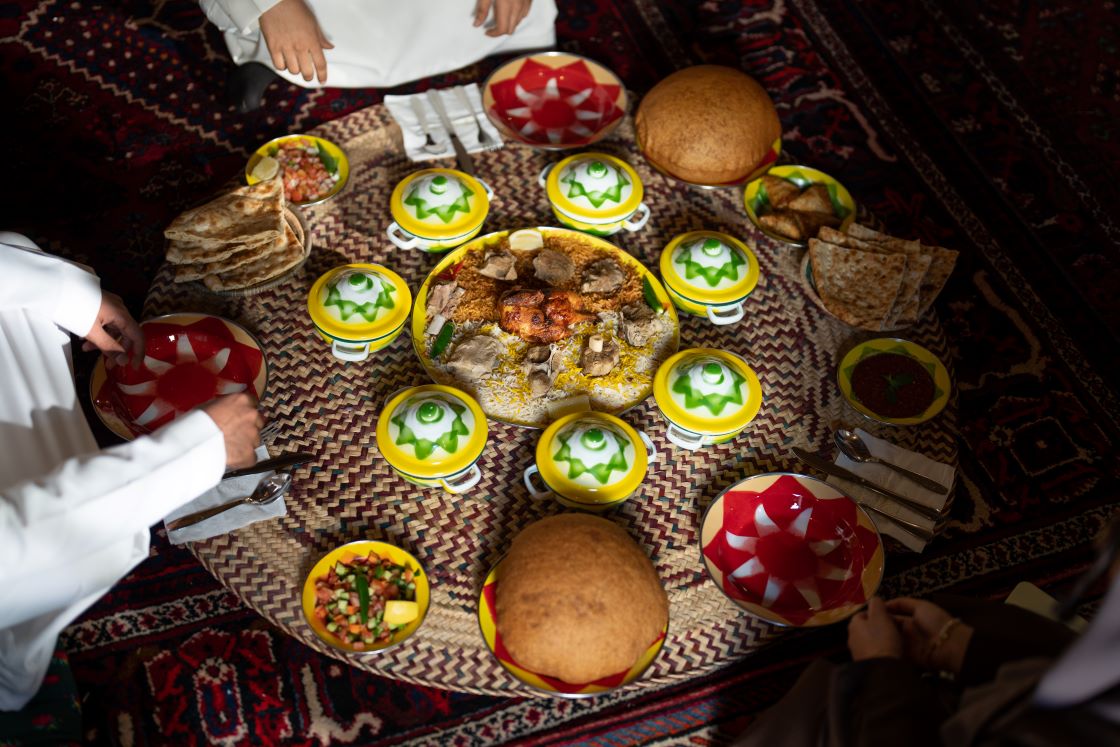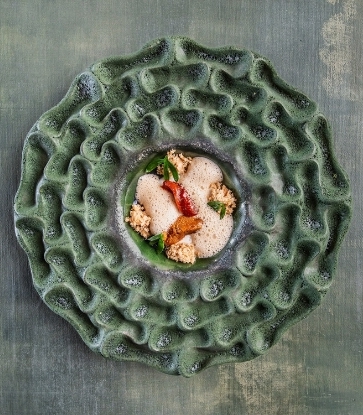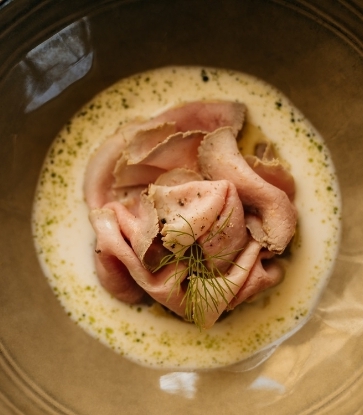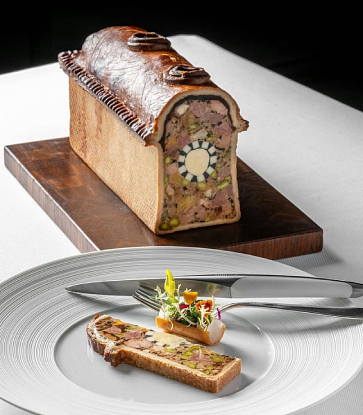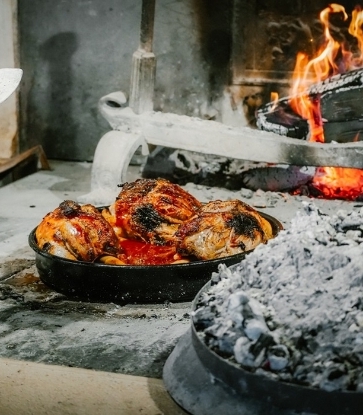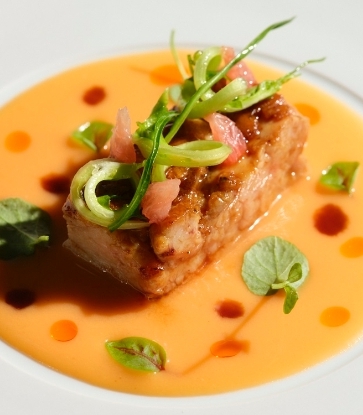Bon appétit! Guten appetit! Buon appetito! Buen provecho! – all variations of the same salutation that our European neighbours use when they’re about to start eating. The Japanese say itadakimasu; in Cantonese it’s sik faan; in Mandarin chi fan; and in Korea they go with jal meokkesseumnida – all roughly translated as let’s eat! or I will eat well!

We poor Brits have always struggled to come up with our own version. We’ve tried commandeering Bon appétit! but that makes us sound affected and many would frankly prefer to forgo food altogether than be thought pretentious. So, what can we use in its place? The wholly unconvincing Enjoy your meal! has some traction but sounds less like the promise of bacchanalian indulgence and more like a prelude to an all-day breakfast in a Wimpy circa 1978. But what’s the alternative? Some prefer greater brevity and adopt the imperative Enjoy! but that sounds like a command that you fear will be supplemented by a Fawlty-esque “And sit up straight, for goodness sake”.
When it comes to the language of the culinary realm on this side of the world, the French simply got there first.
From à la carte to chef de partie, bain-marie to flambé, soufflé to millefeuille – so many words we use are theirs, not ours. On the debit side of our language ledger are the more prosaic le parking and le sandwich, so French linguists needn’t feel too aggrieved.

Now that our country boasts a world renowned restaurant scene of its own, we have largely moved away from the macaronic menus of the past. These days it’s all fashionably terse descriptions, with some confidently listing nothing more than the main ingredient. It’s still possible, though, to come across the occasional florid description of a dish (usually involving a symphony of things nestling on a pillow of something) or, worse still, weapons-grade puns: a personal low point was once seeing a menu advertise a seize her salad. The wise ones know that provenance is everything on a menu, although it can go too far – no one needs to know where the cushions come from or who whittled the spoons. And, of course, getting the word artisan in there somewhere always works wonders.
Country house hotels and cricket grounds remain stubbornly attached to the anachronism that is luncheon. When it comes to discussing whether it’s dinner, tea or supper you can end up lost and afraid in a conversational cul-de-sac about class and what Sigmund Freud called “the narcissism of minor differences”. Even the expression fine dining is one that appears to be used purely for the lack of alternatives. It’s ultimately a fairly meaningless phrase – surely good food is good food, regardless of the style in which it is served or the environment in which it’s eaten?
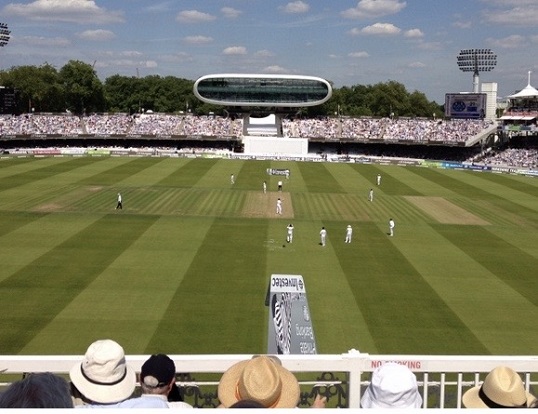
Speaking of being pretentious, when I returned to the UK after spending a fair amount of time in the USA, I started asking for the check rather than the bill. My reasoning was that we all have enough bills in our lives already – gas, phone, vet, Private Member’s – and it’s such a mundane word to end an evening of gloriously unrestrained ordering. What I didn’t bring back from America was that curious habit of emphasising the second syllable of sorbet or pronouncing risotto in that weird way.
Talking of language differences, I once walked past a German tourist in Hong Kong proudly showing off his newly minted bicep tattoo, which he no doubt imagined said something profound and spiritual. My Chinese colleague could barely conceal her delight: “I wonder who’ll tell him it just says kitchen in Chinese”. A French colleague I was having dinner with declared that his dessert was wonderfully spongeous. I had to tell him that it sadly wasn’t an actual word but that it really should be one.
Brits are gloriously straightforward when it comes to food. We distrust the use of emotion in describing a great dish and are far happier using sexual metaphors (so seductive) or narcotic metaphors (so addictive). Thankfully we’ve largely stopped using food metaphors when discussing sex. English is simply not the language of food, but that doesn’t worry us one bit. We understand that its idiosyncrasies and idioms mean it’s not the easiest or most logical language to learn – if it was, monkey and donkey would be pronounced the same way. No, we’re perfectly happy to steal words from other languages, mangle their pronunciation and make them our own.
Anyway, as a nation our default setting is always to search out the snigger. Let’s face it, we can’t say words like blancmange or melange without coming over all Kenneth Williams. At airports, I can’t hear the words carry-on luggage without thinking of Sid James. Crêpes will always make us laugh. I don’t even need to mention spotted dick or Dorset knobs.
Novelist Kingsley Amis maintained that the most depressing words in the English language were “Shall we go straight in?”, although in our current situation many would side with playwright and columnist Keith Waterhouse’s choice of “While you’re up…”. But what about the most appealing words? Henry James considered them to be “summer afternoon”. For me, the five most beautiful words in the English language are indeed ones related to food and I’m hoping that I’ll hear them again soon:
“Are you ready to order?”




